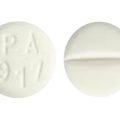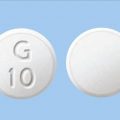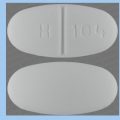Heart disease, stroke, and other cardiovascular diseases cause 1 in 3 deaths in the United States. These diseases cost the US health care system $214 billion a year and cause $138 billion in lost productivity from premature death alone. Both heart attacks and strokes occur suddenly and require immediate medical attention. But when the symptoms of a heart attack or stroke abruptly appear, will you know how to tell the difference between the two?
Both result from a lack of blood flow to critical body parts: a stroke is caused by a blockage in blood flow to the brain, while a heart attack is caused by a blockage in blood flow to the heart. The first aid treatments for each emergency differ. Taking immediate action can mean the difference between survival and recovery, or severe damage (and even death) for a patient.
What is PH 034 pill?
The yellow, round pill with the imprint PH 034 has been identified as Aspirin (chewable) 81 mg supplied by Pharbest Pharmaceuticals. Low-dose aspirin (81 mg) is the most common dose used to prevent a heart attack or a stroke.
Taking a regular dose of aspirin diminishes the ability of your blood to clump together into clots by targeting the body’s smallest blood cells called platelets, they bind together when they encounter damaged blood vessels. While aspirin’s “blood thinning” quality can prevent heart attacks and strokes, it also can put you at higher risk for other harmful events.
Previous guidelines from the United States Preventive Services Task Force warned against taking aspirin for the primary prevention of heart disease unless you’re at an elevated risk — typically if you’re 50 to 69 years old with a 10 percent or greater chance of having a heart attack or stroke within the next 10 years.
How to use chewable PH 034 pill
If you are taking this medication for self-treatment, follow all directions on the product package. If you have any questions, ask your doctor or pharmacist. If your doctor has directed you to take this medication, take it exactly as prescribed.
Chew the tablet thoroughly before swallowing. This medication may also be crushed or swallowed whole. If stomach upset occurs while you are taking this medication, you may take it with food or milk.
The dosage and length of treatment are based on your medical condition and response to treatment. Read the product label to find recommendations on how many tablets you can take in a 24-hour period and how long you may self-treat before seeking medical advice. Do not take more medication or take it for longer than recommended unless directed by your doctor. Use the smallest effective dose. Consult your doctor or pharmacist if you have any questions.
If you are taking this medication for self-treatment of headache, seek immediate medical attention if you also have trouble speaking, weakness on one side of the body, or sudden vision changes. Before using this drug, consult a doctor or pharmacist if you have headaches caused by head injury, coughing, or bending, or if you have a headache with persistent/severe vomiting, fever, and stiff neck. These may be signs of serious medical conditions.
If you are taking this medication as needed (not on a regular schedule), remember that pain medications work best if they are used as the first signs of pain occur. If you wait until the pain has worsened, the medicine may not work as well.
You should not take this medication for self-treatment of pain for longer than 10 days. You should not use this drug to self-treat a fever that lasts longer than 3 days. In these cases, consult a doctor because you may have a more serious condition. Tell your doctor promptly if you develop ringing in the ears or difficulty hearing.
If your condition persists or worsens (such as new or unusual symptoms, redness/swelling of the painful area, pain/fever that does not go away or gets worse) or if you think you may have a serious medical problem, tell your doctor promptly.
PH 034 pill during pregnancy and breastfeeding
Use of PH 034 pill during pregnancy may have adverse effects in the fetus. It should be used during pregnancy only when the benefits outweigh the risks. Aspirin is excreted into breast milk and may cause adverse effects in the infant. Consult your doctor before breastfeeding.
What are side effects of PH 034 pill?
Common side effects of PH 034 pill include:
- rash,
- gastrointestinal ulcerations,
- abdominal pain,
- upset stomach,
- heartburn,
- drowsiness,
- headache,
- cramping,
- nausea,
- gastritis, and
- bleeding.
This is not a complete list of side effects and others may occur. Call your doctor for medical advice about side effects. You may report side effects to FDA at 1-800-FDA-1088.
What Drugs, Substances, or Supplements Interact with PH 034 pill?
Drug interactions include Eskalith, Lithobid (lithium), Rheumatrex, Trexall (methotrexate), Coumadin (warfarin), antidepressants, and other salicylates.
Safety Information
Drinking 3 or more alcoholic drinks every day while taking daily aspirin increases your risk for liver damage and stomach bleeding. If your doctor recommends aspirin, limit or stop alcohol usage.
Talk to doctor before a surgery or procedure. Before having a surgery or procedure that may cause bleeding, tell your doctor or dentist that you take aspirin. Aspirin may cause you to bleed more than usual. He or she will tell you if you should stop taking aspirin before your surgery or procedure. Make sure that you understand exactly what your doctor wants you to do.
Do not suddenly stop taking aspirin without talking to your doctor first. Talking to your cardiologist first is especially important if you have had a stent placed in a coronary artery.
Tell your doctor if you notice that you bruise easily or have other signs of bleeding. These include bloody or black stools or prolonged bleeding from cuts or scrapes.
Tell your doctor about all your medicines. Aspirin should not be taken with many prescription and over-the-counter drugs, vitamins, and natural health products. So before you start aspirin therapy, talk to your doctor about all the drugs and other remedies you take.
Be careful taking pain relievers. Although non-steroidal anti-inflammatory drugs (NSAIDs), such as ibuprofen and naproxen, relieve pain and inflammation much like aspirin does, they do not affect blood clotting in the same way that aspirin does. Do not substitute NSAIDs for aspirin. NSAIDs may increase your risk for a heart attack or stroke.






